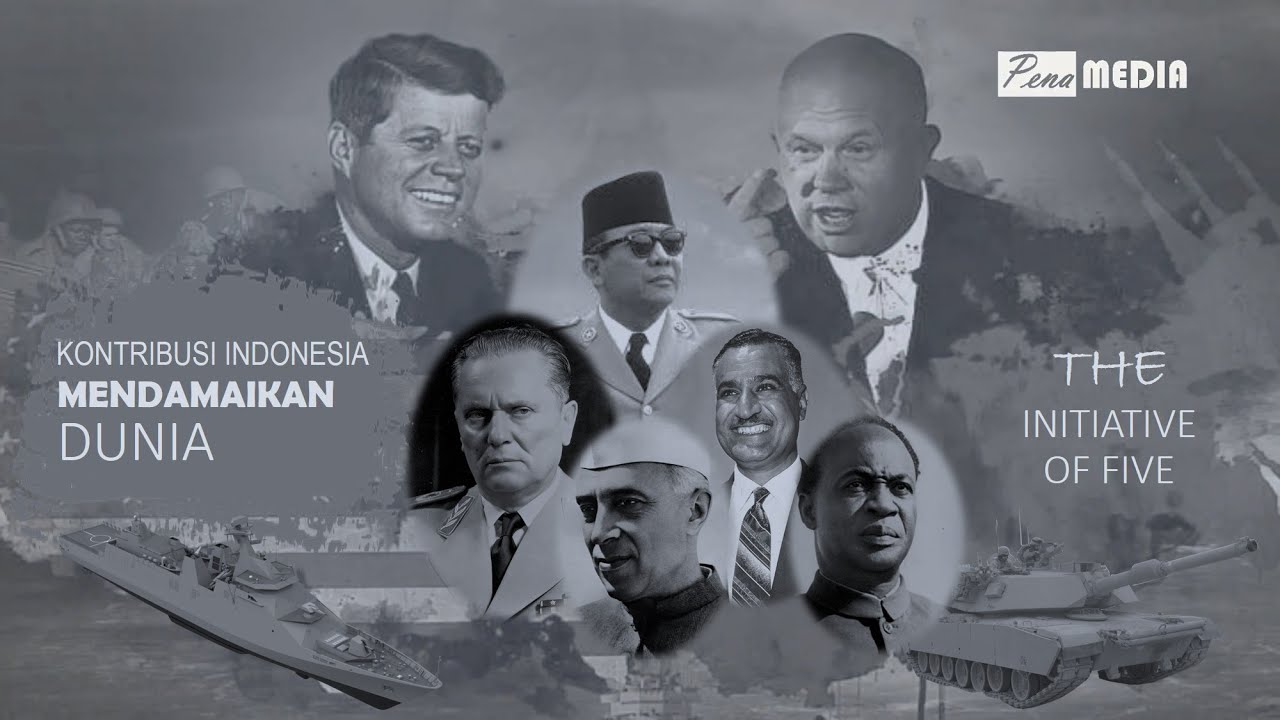Sejarah konferensi asia afrika
Summary
TLDRThe Bandung Conference of 1955 was a landmark event in post-World War II history, where Asian and African nations gathered to assert their independence and promote solidarity against colonialism. Initiated by Indonesian leaders, the conference addressed pressing issues of the time, resulting in the establishment of the 'Dasasila Bandung,' a ten-point declaration advocating for mutual respect, sovereignty, and peaceful coexistence. This gathering not only elevated Indonesia's global standing but also marked a significant shift towards decolonization and the creation of a more equitable international order, inspiring future movements for justice and cooperation among developing nations.
Takeaways
- 🌍 The end of World War II in August 1945 did not resolve global tensions, with conflicts persisting in various regions.
- 📜 Indonesia, committed to anti-colonialism and neutrality, initiated the Asia-Africa Conference to address global issues.
- 🤝 The Colombo Conference in April-May 1954 was crucial for discussing the need for a broader Asia-Africa meeting.
- ✈️ The Asia-Africa Conference took place in Bandung from April 18 to 24, 1955, attracting delegates from 29 countries.
- 🎉 The conference featured a symbolic march known as 'the Bandung walk,' showcasing solidarity among nations.
- 📝 The Bandung Conference resulted in significant decisions aimed at promoting socio-economic cooperation and combating imperialism.
- 📜 The conference produced the 'Ten Principles of Bandung,' emphasizing respect for sovereignty and human rights.
- 🌐 The principles highlighted the importance of peaceful dispute resolution and non-interference in domestic affairs.
- ✨ The Bandung spirit inspired independence movements in Asia and Africa, fostering solidarity against colonialism.
- 🏛️ The success of the conference elevated Indonesia's global standing and contributed to decolonization efforts worldwide.
Q & A
What were the global tensions following World War II?
-Following World War II, the world experienced significant emotional and psychological tensions, with ongoing conflicts and colonial issues persisting, particularly in Asia and Africa.
How did the world divide during the Cold War?
-The world was divided into two blocs: the Western bloc, led by the United States and characterized by liberal capitalism, and the Eastern bloc, led by the Soviet Union and composed of communist nations.
What role did Indonesia play in post-war international politics?
-Indonesia emerged as a key player in post-war international politics by advocating for anti-colonialism and neutrality, eventually initiating the Asia-Africa Conference to promote solidarity among newly independent nations.
What was the purpose of the Asia-Africa Conference?
-The Asia-Africa Conference aimed to discuss shared issues among Asian and African nations, foster cooperation, and build solidarity against colonialism and imperialism.
When and where did the Asia-Africa Conference take place?
-The Asia-Africa Conference took place in Bandung, Indonesia, from April 18 to May 2, 1955.
How many countries participated in the Asia-Africa Conference?
-A total of 29 countries participated in the Asia-Africa Conference.
What were the 'Ten Principles' established during the conference?
-The 'Ten Principles,' also known as the 'Dasasila Bandung,' emphasized respect for sovereignty, non-interference in domestic affairs, peaceful resolution of disputes, and the promotion of human rights among others.
What impact did the Asia-Africa Conference have on international relations?
-The conference significantly altered international relations by giving a voice to the Global South, promoting non-alignment, and encouraging cooperation among developing nations.
What legacy did the Bandung Conference leave for newly independent nations?
-The Bandung Conference inspired a spirit of solidarity among Asian and African nations, leading to greater cooperation in political, social, and economic spheres and fostering movements for independence.
How did the conference contribute to the decolonization movement?
-The conference galvanized the decolonization movement by highlighting the struggles of Asian and African nations, thus encouraging them to pursue independence and resist imperialism.
Outlines

This section is available to paid users only. Please upgrade to access this part.
Upgrade NowMindmap

This section is available to paid users only. Please upgrade to access this part.
Upgrade NowKeywords

This section is available to paid users only. Please upgrade to access this part.
Upgrade NowHighlights

This section is available to paid users only. Please upgrade to access this part.
Upgrade NowTranscripts

This section is available to paid users only. Please upgrade to access this part.
Upgrade NowBrowse More Related Video

KAA - Sejarah Singkat Konfrensi Asia Afrika

INDEPENDÊNCIAS NA ÁSIA E A CONFERÊNCIA DE BANDUNG (HISTÓRIA)

Sejarah gerakan non blok

VLOG MUSEUM KONFERENSI ASIA AFRIKA BANDUNG (Tugas Besar Komunikasi AntarBudaya Kelompok 2-KM 45 02

Sejarah Konferensi ASIA-AFRIKA, Ide Lahirnya Sampai Munculnya Kesepakatan DASASILA BANDUNG

SERAKAHNYA BANGSA EROPA Yang Menjajah Hampir Seluruh Benua Afrika!
5.0 / 5 (0 votes)